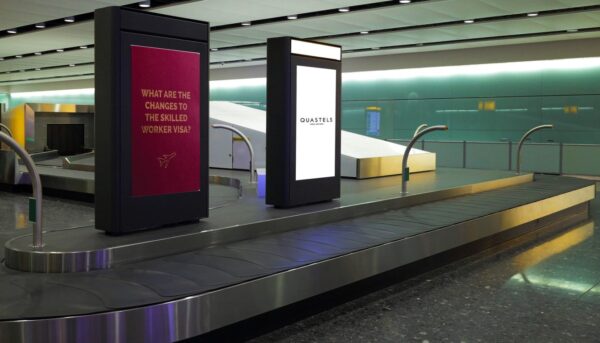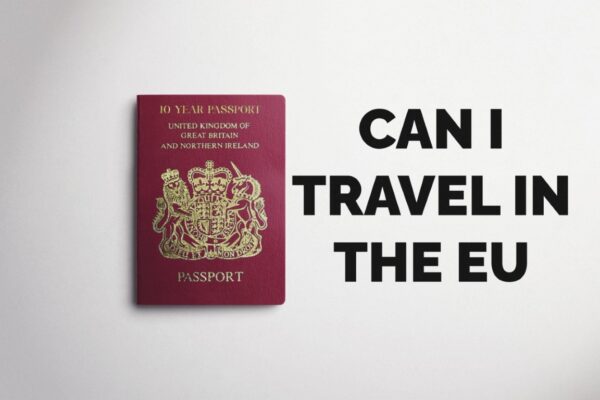Latest Posts

Skilled Worker Changes | Effective April 2024
The changes to the Skilled Worker route coming into force from April 2024 will severely affect skilled workers, employers, and the UK’s ability to attract and retain talent globally.
The changes to the Skilled Worker route coming into effect from the 4th April 2024 are surmised below:
Skilled Worker
- The Skilled Worker minimum salary thresholds are increasing as follows:
- Option A (most applicants): from 26,200 – 38,700 GBP
- Option B (relevant PhD): from 23,800 – 34,830 GBP
- Option C (relevant STEM PhD): from 20,960 – 30,960 GBP
- Option D (shortage occupation list / Immigration Salary List): from 20,960 – 30,960 GBP
- Option E (new entrants) from 20,960 – 30,960 GBP
- The ‘going rates’ for individual SOC codes will be increasing.
- The 20% discount to the going rate for shortage occupation (Option D) will be removed. The 10% discount for relevant PHDs (Option B), the 20% discount for STEM PhDs (Option C)and the 30% discount for new entrants (Option E) will be retained.
- The current Shortage Occupation List under Option D will be replaced with an Immigration Salary List, a more restrictive list of SOC Codes.
- From the 4th April, supplementary work will be permitted in any role that would meet the skill level for sponsorship.
Skilled Workers (Health Care)
- The adjusted general thresholds will apply to Health and Care Visas from 4th April:
- Option F (most applications): from 26,200 – 29,000 GBP
- Option J (new entrants): from 20,960 – 23,200 GBP
Assignment Of A Certificate Of Sponsorship Before 4th April
Skilled workers who already hold permission under the route, or have a CoS assigned to them before 4th April 2024, will not be subject to the new salary thresholds and different rules will apply.
Existing Skilled Workers will only be affected by the change in Rules when they make a further application under the route, for example, when they are extending their Skilled Worker visa, or are making a change of employment application.
How Our Immigration Solicitors Can Help
Our Solicitors are experienced in all aspects of sponsorship and preparing Skilled Worker route applications. If you require advice, our team would be happy to have a discussion with you.
If you or your connections require legal advice, please contact Jayesh Jethwa or fill out our enquiry form below.

UK Investor Visa: When in 2024 Will it Return?
What Is The ‘New’ Investor Route?
Under the new Investor visa, we expect that the Home office will require third parties (with finance knowledge) to vet and verify applicants’ funds in order to provide endorsements for a visa application to be made.
A Brief History Of The Route
Until the 17th February 2022, the UK had an investor visa scheme since 1995. Priti Patel, then Home Secretary, closed the UK Tier 1 (Investor) visa route on the 17th February 2022. The closure was in response to Russia’s invasion of Ukraine.
The investor visa had been subject to significant and stringent changes in 2008, 2015 and 2019. The Tier 1 route required individuals to invest no less than 2 million GBP in qualifying investments. Provided an individual maintained their investment, the route would lead to permanent residence after five years (and in some cases on an sooner depending on the amount invested) and then eventually naturalisation as a British Citizen.
The Government’s Pledge To Reintroduce An Investor Visa
Since the closure of the Investor visa, the Government has pledged to re-introduce an investment-based visa. Initially the new route was due to open in 2022, then September 2023. We now expect the Investor visa to be introduced after the General Election and as part of the new future government’s immigration plan.
As the UK begins to grasp inflation and needs to attract individuals who provide foreign investment into the UK economy, an iteration of the investor visa route would benefit the UK FDI initiatives.
How Will It Work?
We expect to see the future iteration of the investor visa to have additional requirements which may include:
- The investor to have prior experience of investing in ‘innovative’ businesses.
- The qualifying investment to be into specific types of UK companies.
- A requirement to demonstrate the source of the investment does not derive from passive income or inherited wealth.
- An increase in the minimum level of investment.
- We expect the Home Office will require third parties to vet and verify the applicants’ funds.
- An endorsement process akin to that of the innovator visa.
Compliance
We expect that the Home Office’s intention to have a third party to vet and endorse applicants creates an arms-length approach to an investment-derived immigration category. This would allow the Home office to redirect any adverse media attention in the event of future failings to vet applicants.
Following a review of the investor visa of 6,312 Tier 1 applications to assess whether the route was facilitating abuse of money laundering regulations, potential links to criminality or other risks it was determined that a ‘small minority’ of individuals connected to the Tier 1 visa route were ‘high risk’.
The Economic Crime (Transparency and Enforcement) Act 2022 (see our recent article here) is designed to mitigate the concerns regarding foreign investment in the UK as part of the government’s wider initiative to tackle money laundering. The Act introduces a Register of Overseas Entities to deliver transparency regarding overseas owners of land and leases in the UK.
Conclusion
The economy in the UK, the upcoming general election and wider geo-political issues presents the UK government with an inventive to introduce an investment-derived immigration category to drive foreign direct investment from responsible and vetted investors.
Investment derived migration programmes enable countries to improve their public finances and support economic growth without incurring debt. There is a great deal of pressure on the UK to become more competitive on the global stage; a new UK investor route should be introduced imminently.
If you or your connections require legal advice, please contact Jayesh Jethwa or fill out our enquiry form below.

Can I travel in the EU on my passport and what is the 10-year rule?
The rules for UK passport holders travelling to Europe has changed after Brexit.
UK nationals travelling abroad used to be able to carry up to nine months left on an old passport over to a new one. This meant that a passport could be valid for more than 10 years. This did not matter when the UK was a member of the EU.
However, the rules changed after Brexit, and the majority of EU countries no longer accept British passports, which were issued more than 10 years before the date – known as ‘the 10-year rule’.
To enter EU countries, your UK passport must:
- Have been issued less than 10 years before the date you enter the UK country (i.e. ‘the date of issue’)
- Be valid for at least three months after the day you plan to leave (i.e. ‘the date of expiry’)
If your passport does not meet these requirements, you will be refused entry.
These rules apply to all 27 EU countries except Ireland. They also apply to passengers travelling to countries within the EEA, Iceland, Norway, Liechtenstein, and Switzerland.
If your passports date of issue was more than 10 years ago or your passport does not have enough time before it expires you should apply to renew your passport with HM Passport Office. Applications to renew a passport take on average up to three weeks to renew at a cost of 82.50 GBP.
If you or your connections require legal advice, please contact Jayesh Jethwa or fill out our enquiry form below.